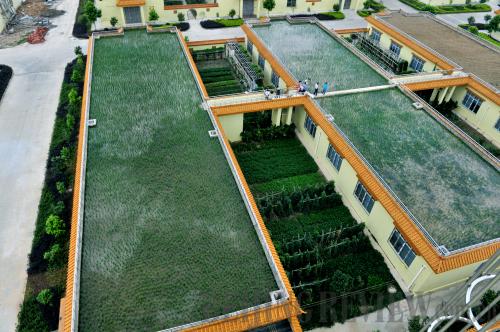|
 |
|
RICE FIELD ON THE ROOF: A wine company in Liuzhou, Guangxi Zhuang Autonomous Region plants rice on a building roof to lower the temperature of the workshop beneath (LI HANCHI) |
Thriving E-commerce
Online shopping is no longer exclusively for city dwellers, as residents of smaller locales are now spending more money buying goods on the Internet.
People living in counties and townships each spent an average of 5,628 yuan ($911) online in 2012, almost 1,000 yuan ($163) more than their urban counterparts, according to a report released on June 29 by Taobao, China's leading online shopping site.
The report showed that county and township residents placed an average of 54 orders each on Taobao in 2012, far more than the 39 orders placed by e-shoppers living in China's first- and second-tier cities.
Though with generally lower incomes, residents in small towns and counties tend to have similar online spending habits as their urban counterparts, according to a report released in March by McKinsey Global Institute.
The McKinsey report said that for every 100 yuan ($16.31) spent online, 57 yuan ($9.30) is spent by people in third- and fourth-tier cities, greater than the national average of 39 yuan ($6.36).
Revenues Slow
The Ministry of Finance announced on July 29 that China's tax revenues, a major source of the government's fiscal income, grew at a slower pace in the first half of 2013.
During the January-June period, the government collected tax revenue totaling 5.93 trillion yuan ($961 billion), up 7.9 percent year on year, but slower than the 9.8-percent increase seen in the same period of last year.
China's fiscal revenue growth faltered on the back of a continuous economic slowdown and the country's structural tax reforms, including a pilot program to reduce Chinese companies' tax burden by replacing the turnover tax with a value-added tax (VAT), a type of tax levied on the difference between a commodity's retail price and production cost.
The revenue from the VAT increased 6.6 percent to 1.43 trillion yuan ($233 billion), down 1.5 percentage points from the growth in the first half of 2012. | 